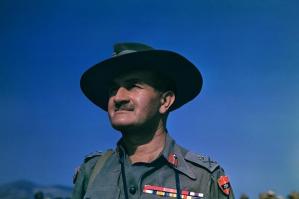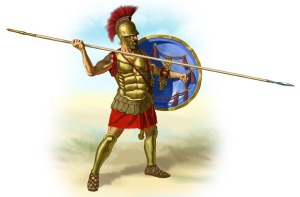
Readers may know that I’ve written two previous articles here on General William Slim’s Burma campaign during the Second World War. His memoirs continue to provide me with gems of advice on morale, conduct, and taking action.
I will present some additional quotes of his here. They deserve to be read in their entirety.
On Morale
Morale is a state of mind. It is that intangible force which will move a whole group of men to give their last ounce to achieve something, without counting the cost to themselves; that makes them feel they are part of something greater than themselves. If they are to feel that, their morale must, if it is to endure–and the essence of morale is that it should endure–have certain foundations.
These foundations are spiritual, intellectual, and material, and that is the order of their importance. Spiritual first, because only spiritual foundations can stand real strain. Next intellectual, because men are swayed by reason as well as feeling. Material last–important, but last–because the very highest kinds of morale are often met when material conditions are lowest.
I remember sitting in my office and tabulating these foundations of morale something like this:
1. Spiritual
a. There must be a great and noble object.
b. Its achievement must be vital.
c. The method of achievement must be active, aggressive.
d. The man must feel that what he is and what he does matters directly towards the attainment of the object.
2. Intellectual
a. He must be convinced that the object can be attained; that it is not too out of reach.
b. He must see, too, that the organization to which he belongs and which is striving to attain the object is an efficient one.
c. He must have confidence in his leaders and know that whatever dangers and hardships he is called upon to suffer, his life will not be lightly flung away.
3. Material
a. The man must feel that he will get a fair deal from his commanders and from the army generally.
b. He must, as far as humanly possible, be given the best weapons and equipment for the task.
c. His living and working conditions must be made as good as they can be.

On Operations
But the key question remained for Slim: how do you instill these qualities and values in your men? What should be done about it? His answer was this:
I felt there was only one way to do it, by a direct approach to the individual men themselves. Not by written exhortations, by wireless speeches, but by informal talks and contacts between troops and commanders…All I did now was to encourage my commanders to increase these activities, unite them in a common approach to the problem, in the points that they would stress, and in the action they would take to see that principles became action, and not merely words.
Slim then talks about the principles he used to plan his operations. He wanted to go on the offensive, and to take the fight to the enemy. He realized that, after having been severely defeated by the Japanese, he had to regain the initiative or his entire army would fall apart. He tells us:
The principles on which I planned all operations were:
The ultimate intention must be an offensive one.
The main idea on which the plan was based must be simple.
That idea must be held in view throughout and everything else must give way to it.
The plan must have in it some element of surprise.
These, then, are General Slim’s thoughts on morale and the planning of operations.
Read More: Some Practical Ways To Gain Leadership Experience

You must be logged in to post a comment.